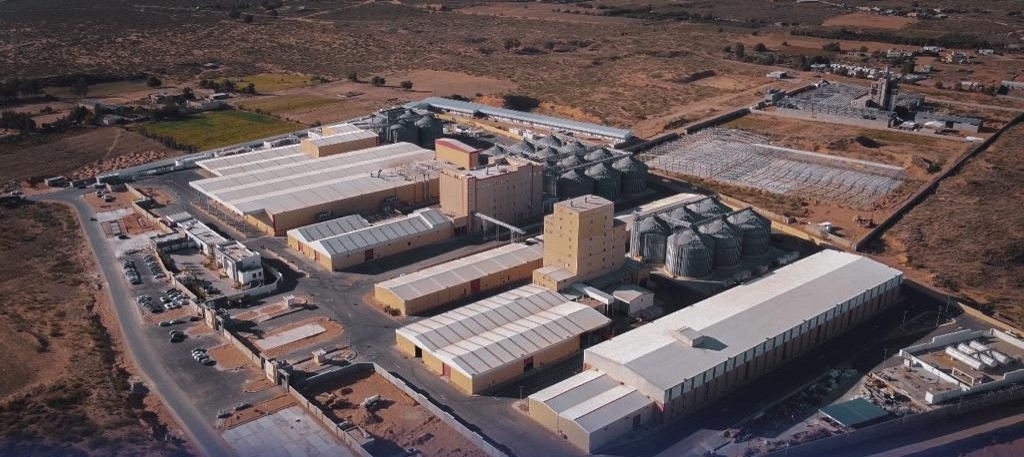Food security is an essential challenge in Libya, however, the country has made significant progress towards improving the situation. From increasing domestic food production to improving food distribution networks and infrastructure, proposed solutions and initiatives have been gradually implemented to address the root causes of food insecurity.
In this article, we will explore these solutions, with a focus on the positive efforts being made by the food industry in Libya and a prominent private sector player, AlSahl Group.
In the end, we hope to inspire and encourage continued efforts towards enhancing food security in Libya.
Challenges Threatening Achieving Food Security in Libya
Libya currently faces a number of food security challenges, including economic challenges and high unemployment rates. Libyans usually find it difficult to get the food they need due to limited access to resources and infrastructure. Another challenge that a lot of countries also face is Climate change and environmental factors which can impact agricultural production, leading to crop failure and reduced yields.
Lastly, the lack of diversity in agricultural production can lead to a dependence on a few key crops, making the food system vulnerable to disruption.
However, these challenges can be fought using well designed strategies that involve all concerned parties.
Solutions to Increase Food Security In Libya
An approach to addressing food insecurity involves enhancing domestic food production and expanding agricultural diversity. By doing so, a more robust and sustainable food system can be established, capable of withstanding environmental impacts such as climate change.
Moreover, an effective strategy involves enhancing food distribution networks and infrastructure to facilitate access to those who require it most. This will lead to upgrading market, transportation, and storage systems.
Encouraging private sector investment in the food industry can also generate employment opportunities, stimulate economic growth, and contribute to overall food security improvements.
NGO Initiatives and Interventions
Non-governmental organizations (NGOs) have played a critical role in addressing food insecurity in Libya. They have launched food assistance and distribution programs, developed community-based approaches to food security. For instance, The World Food Program ( WFP) provides general assistance to those who need it in Libya. Other non profit parties such as the Libyan Red Crescent Society, have distributed food aid to tens of thousands of people affected by the conflict which helped alleviate some of the food related issues.
The Role of the Private Sector in Addressing Food Insecurity
The private sector has an important role to play in addressing food insecurity in Libya. The food industry is a critical sector for economic growth and job creation. Private sector investments can contribute to increasing the availability and affordability of food, which can enhance food security.
Companies can also adopt sustainable and environmentally friendly practices that can improve agricultural production and reduce the impact of climate change. Furthermore, the private sector can leverage its resources and expertise to drive innovation in food production and distribution systems, leading to more efficient and effective solutions for addressing food insecurity.
Case Study: AlSahl Group Contributing to the Food Industry in Libya
AlSahl Group is one of the prominent private sector players in Libya’s food industry. The company has a significant presence across the food value chain, from production to distribution and retail.
AlSahl Group has invested heavily in modernizing the food industry in Libya, with a focus on improving domestic food production, processing, and distribution. The conglomerate, through its sub brands and companies also focuses on agriculture and agribusiness in Libya through producing agricultural products.
How Does AlSahl Group Contribute to Food Security?
AlSahl contributes to improving food security in Libya in two ways: by producing and distributing finished food products and by distributing agribusiness products.
Through brands active in the food industries such as Prima, ElBaraka and Tamam, the conglomerate produces and/or distributes the following products that are intended to meet the basic needs of Libyans :
- Pasta, couscous and flour
- Vegetable oil
- Distribution of dates
- Cakes, cookies and croissants
- Poultry meat
The group has always been aware of the crucial importance of agriculture in solving food security problems, which has led it to implement an in-depth strategy to provide agribusiness products.
Activities related to agriculture include :
- Import of corn, wheat and barley
- Import and distribution of cereals in Libya
- Agricultural investment and distribution of fertilizers and seeds
Conclusion & Call to Action
Enhancing food security in Libya requires the concerted efforts of all stakeholders, including the private sector, NGOs, and the government. The food industry in Libya has made significant progress towards improving food security, with the private sector playing a crucial role.
AlSahl Group’s contributions to the food industry and its initiatives to address food insecurity provide an excellent example of how private sector companies can make a positive impact on society. However, there is still much work to be done, and continued efforts and collaborations are necessary to achieve sustainable food security in Libya.





